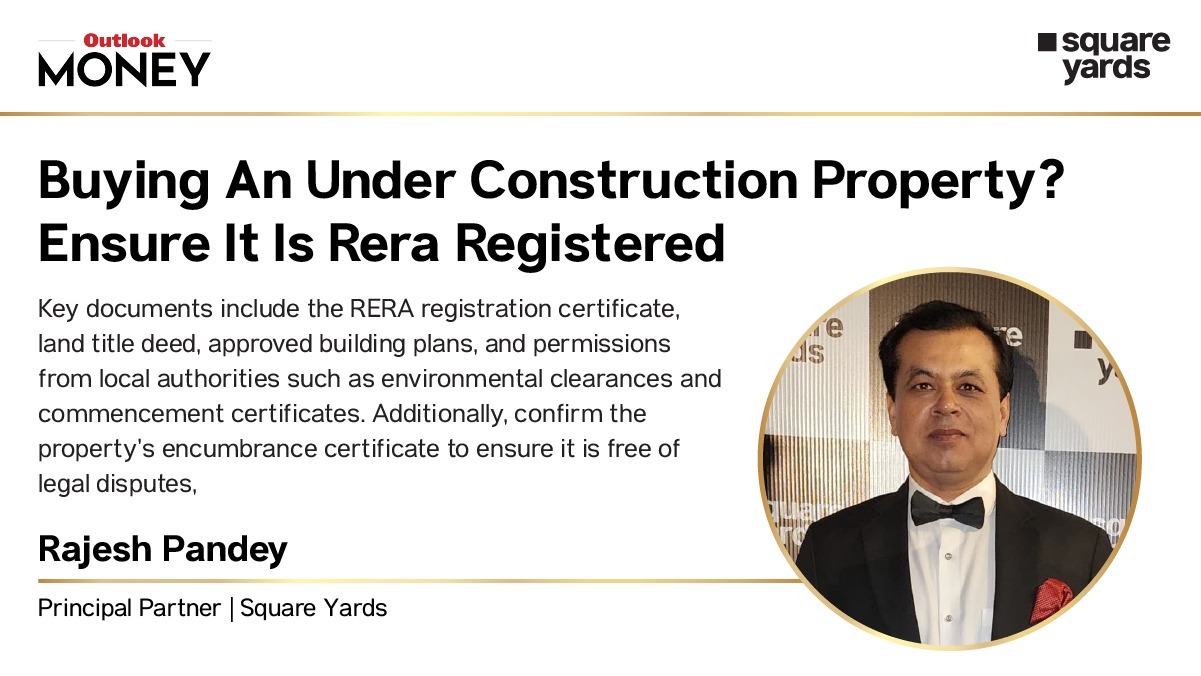| Key Highlights |
|
Investing in an under-construction property offers an advantage in securing a high-value asset at a relatively lower cost. It allows buyers to lock in a competitive price today while potentially reaping significant appreciation when the property is ready. However, a decision of this magnitude demands more than just excitement. It requires careful attention to important factors to avoid delays, disputes, or unexpected pitfalls.
RERA Registration: A Critical Safeguard!
One critical aspect that stands out is RERA registration. Introduced in 2016, the government designed the Real Estate (Regulation and Development) Act (RERA) to protect homebuyers and promote transparency in real estate transactions. According to recent industry insights, over 80% of homebuyers feel more secure when investing in RERA-compliant projects. As the real estate landscape keeps changing based on needs, understanding the importance of regulatory compliance isn’t just advisable; it’s indispensable for making informed, secure investments.
Why RERA-Registration Is the Bedrock of Homebuyer Confidence?
As Rajesh Pandey, Principal Partner at Square Yards, points out, “Verifying the project’s legal compliance is crucial. Key documents include the RERA registration certificate, land title deed, approved building plans, and permissions from local authorities, such as environmental clearances and commencement certificates. Additionally, confirm the property’s encumbrance certificate to ensure it is free of legal disputes.“ This statement highlights the importance of thorough due diligence, especially when the stakes are high with under-construction properties.
Rising Concerns in the Under-Construction Property Market
While under-construction properties offer promising returns, buyers must be aware of potential pitfalls:
- Project Delays: Frequent delays leave buyers juggling rent and EMIs, causing financial strain.
- Fund Diversion: Misuse of funds by developers often leads to stalled or incomplete projects.
- Hidden Costs: Unexpected charges can significantly increase the buyer’s financial burden.
- Quality Disputes: Delivered properties may fall short of promised standards, leading to dissatisfaction and repair costs.
The Role of RERA in Addressing These Issues
RERA addresses these challenges and gives homebuyers greater investment confidence. It ensures:
- Accountability for Delays: Developers face penalties for failing to meet timelines.
- Funds in Escrow: The entity safeguards buyer payments to prevent fund mismanagement.
- Mandatory Disclosures: Developers must provide complete and accurate project information.
- Grievance Redressal: Buyers have a structured platform for dispute resolution.
While RERA compliance offers a strong foundation for secure investments, it is not the sole measure of protection. Exploring additional precautions is equally essential to further safeguarding financial interests.
Beyond Registration
When investing in RERA-registered projects, homebuyers can access protection mechanisms that safeguard their interests. Key benefits include:
Legal Right to Compensation: Under Section 18(1) of RERA, developers must compensate buyers for delays by either:
- Providing a full refund with interest (10% of the invested amount)
- Offering compensation while continuing with the project
- Ensuring resolution within 45 days
Grievance Redressal: A structured platform to address concerns about project quality or timelines.
“In today’s market, due diligence goes beyond just paperwork,“ emphasises Rajesh Pandey of Square Yards. “Additionally, consider a project-specific home insurance plan to mitigate potential financial risks associated with delays.” The key is to invest in projects by developers with a strong track record.
Read more through the links below to uncover the key trends and market leaders driving this growth:
Outlook Money – https://bit.ly/3WpSamu
Published Date: 11 Jan, 2025





